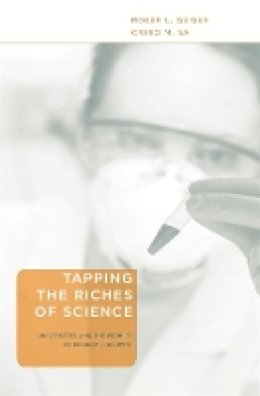
Tapping the Riches of Science: Universities and the Promise of Economic Growth
Roger L. Geiger
Can university-based scientific research contribute to the economic development of a region? Can it generate wealth for the university? American universities are under increasing pressure to maximize their economic contributions. Tapping the Riches of Science offers a rigorous and far-sighted explanation of this controversial and little-understood movement.
Just how do universities contribute to innovation in industry? How have state legislatures promoted local university commitments to economic relevance? And how has the pressure to be economically productive affected the core academic missions of teaching and research? Drawing from a range of social science analyses, campus interviews, and examples of university-industry ... Read more
Product Details
About Roger L. Geiger
Reviews for Tapping the Riches of Science: Universities and the Promise of Economic Growth
